Register for The Herbert Benson, MD Course in Mind Body Medicine October 30 – November 1, 2025
Uncategorized
Register for The Herbert Benson, MD Course in Mind Body Medicine October 30 – November 1, 2025
Harvard Medical School CME In-Person in Boston, MA AND via Live Streaming
Registration is now open for The Herbert Benson, MD Course in Mind Body Medicine, the Benson-Henry Institute’s celebrated continuing medical education (CME) course, offered in partnership with Harvard Medical School.
The course will be held live, in person at the Fairmont Copley Hotel in Boston, MA and will be livestreamed to participants around the world. Video recordings of all talks will be available to all conference-goers for up to 60 days. BHI is also offering two optional online pre-course workshops, Mind Body Approaches to Weight Management and Group Medical Visits to Guide Patients to Healthier Lifestyle Behaviors.
“The Herbert Benson Course in Mind Body Medicine is an opportunity for clinicians, researchers, scientists and mind body enthusiasts to explore the latest research and learn the best techniques in mind body medicine. Our work – providing patients with skills to build resilience and improve wellbeing – are essential as we rebound from the pandemic and face a multitude of other stressful challenges at home and abroad. We are so pleased to be able to meet each other again in person this fall, and to provide online streaming to participants around the world. The course provides a wonderful opportunity to connect and collaborate with colleagues around the world,” said BHI Director Gregory Fricchione, MD. “We have an impressive line-up of keynotes and experts in the field, and we offer two wonderful optional half-day courses on mind body approaches to weight management and delivering mind body medicine in group visits.”
Keynote speakers are Yvette Cozier, DSc, an investigator on the Black Women’s Health Study (BWHS) and the BWHS Sarcoidosis Study at the Slone Epidemiology Center at Boston University; Stephen Post, PhD, a researcher and expert on the benefits and links between altruism, compassion, happiness, healing and health; Adam Rodman, MD, MPH, whose research research focuses on medical education, clinical reasoning, integration of digital technologies, and human-computer interaction, especially with AI; Dr. K.“Vish” Viswanath, PhD, who studies how communication and social media can impact health decisions, mitigate adversity and build resilience; and Rochelle Walensky, MD, MPH, the 19th Director of the Centers for Disease Control and Prevention during the COVID 19 pandemic and currently a Senior Fellow of the Women and Public Policy Program at the Harvard Kennedy School of Government.
This program is among the highest-rated Harvard Medical School CME course. The Harvard Medical School is accredited by the Accreditation Council for Continuing Medical Education (ACCME) to provide continuing medical education for physicians. The Harvard Medical School designates this live activity for a maximum of 25.75 AMA PRA Category 1 Credits™. Physicians should claim only the credit commensurate with the extent of their participation in the activity. For additional accreditation information, please see below.
Participants will get
- The latest clinical approaches and integrative models of care
- Cutting-edge research into the linkages between the brain and the body
- Education on genomics, transcriptomics, metabolomics ad how to leverage recent advances in the neuroimaging of contemplative states
- Current data on stress, stress management and resilience enhancement, and their impacts on patient health and treatment options
For course scheduling, information and to register, please visit mindbody.hmscme.com. Register by September 20th for an early bird discount.
About our Keynotes
 Yvette Cozier, ScD
Yvette Cozier, ScD
Dr. Yvette Cozier is an Associate Professor of Epidemiology, and the Associate Dean of Diversity, Equity, Inclusion and Justice (DEIJ) at Boston University School of Public Health. She is also a Senior Epidemiologist at the Slone Epidemiology Center at Boston University School of Medicine where she co-leads the Black Women’s Health Study (BWHS), a National Institutes of Health (NIH)-funded follow-up of over 59,000 African American women begun in 1995.
As of July 1st, Dr. Cozier is the Immediate Past President of the Society for Epidemiologic Research (SER), the nation’s oldest and largest general epidemiology organization. As a social epidemiologist, Dr. Cozier’s overall research focus is on the influence of psychosocial and structural factors (e.g., interpersonal racism, neighborhood socioeconomic status) – on health, including the development of chronic cardiometabolic (obesity, type-2 diabetes), immune-mediated (lupus, sarcoidosis, inflammatory bowel disease), neurologic (Insomnia, Parkinson’s disease) and dental (periodontal disease, tooth loss) conditions.
She has published several articles on the role of attitudes about spirituality and religiosity on health.
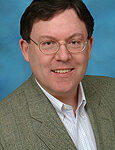 Stephen Post, PhD
Stephen Post, PhD
Stephen G. Post is Professor of Family, Population and Preventive Medicine & Founding Director of the Center for Medical Humanities, Compassionate Care and Bioethics (2008-present) at Stonybrook University. Previously he was Professor of Bioethics in the Department of Bioethics of the Case Western Reserve University School of Medicine (1988-2008). He also taught at the University of Chicago Pritzker School of Medicine.
Dr. Post is an Elected Fellow of the New York Academy of Medicine (2013-present), and of the College of Physicians of Philadelphia for “distinguished contributions to medicine” (2004-present). He is an elected Fellow of the Hastings Center “for distinguished contribution to ethics and the life sciences” (1994 -present) and of the Kennedy Institute of Ethics, Georgetown University (1990-1995).
He has received the United States Congress Certificate of Special Recognition “In Recognition of Outstanding Achievement” (2012); and the Pioneer Medal for Outstanding Leadership in Health Care (shared with Dr. Edmund D. Pellegrino, MD) from HealthCare Chaplaincy New York (2012).
Post was selected as the Public Member of the United States Medical Licensing Examination (USMLE) Composite Committee (jointly established by the Federation of State Medical Boards of the United States and the National Board of Medical Examiners, the Composite Committee is responsible for oversight and policy in all aspects of the USMLE program) (2000-2003); he was reappointed on the basis of “greatly appreciated contributions” for a second term (2004).
Dr. Post is the primary author of over 200 articles in peer-reviewed journals such as Science, Annals of Internal Medicine, The Journal of Religion, The American Journal of Psychiatry, First Things, Dementia, The Journal of the American Medical Association, and The Lancet. Post served as Editor-in-Chief of the 5-volume Encyclopedia of Bioethics, 3rd edition (Macmillan Reference 2004). His best-selling books include The Hidden Gifts of Helping and Why Good Things Happen to Good People (with co-author Jill Neimark). He is the editor of 14 books and the author of eight.
His book The Moral Challenge of Alzheimer’s Disease: Ethical Issues from Diagnosis to Dying (Johns Hopkins University Press, 2000, 2nd edition) was designated a “medical classic of the century” by the British Medical Journal (2009), which wrote, “Until this pioneering work was published in 1995 the ethical aspects of the one of the most important illnesses of our aging populations were a neglected topic.” Post is an elected Member of the Medical and Scientific Advisory Board of Alzheimer’s Disease International, and one of only three recipients of the Alzheimer’s Association Distinguished Service Award “in recognition of personal and professional outreach to the Alzheimer’s Association Chapters on ethics issues important to people with Alzheimer’s and their families” (1998).
Post has been quoted in more than 3,000 national and international newspapers and magazines including the New York Times, the Los Angeles Times, U.S. News and World Report, The Wall Street Journal, the Washington Post, Psychology Today, and USA Today. He has also been interviewed on major television and radio news shows, including ABC 20/20 Holiday Special 2006 on “Giving in America,” Nightline, The Daily Show, John Stossel, “Talk of the Nation,” and The Dr. Oz Show
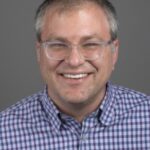 Adam Rodman, MD, MPH
Adam Rodman, MD, MPH
Adam Rodman is a general internist and medical educator at Beth Israel Deaconess Medical Center and an assistant professor at Harvard Medical School. He is the Director of AI Programs for the Carl J. Shapiro Center for Education and Research and he leads the task force for integration of AI into the medical school curriculum. He is also an associate editor at NEJM AI. His research focuses on medical education, clinical reasoning, integration of digital technologies, and human-computer interaction, especially with AI. His first book is entitled “Short Cuts: Medicine,” and he is the host of the American College of Physicians podcast Bedside Rounds.
Adam completed his residency in internal medicine at Oregon Health and Science University in Portland, OR, and his fellowship in global health at Beth Israel Deaconess Medical Center while practicing in Molepolole, Botswana. He lives in Boston with his wife and two young sons.
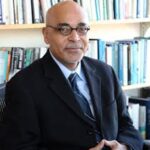 Kasisomayajula Viswanath, PhD
Kasisomayajula Viswanath, PhD
Dr. K. “Vish” Viswanath is Lee Kum Kee Professor of Health Communication in the Department of Social and Behavioral Sciences at the Harvard T. H. Chan School of Public Health (HSPH) and in the McGraw-Patterson Center for Population Sciences at the Dana-Farber Cancer Institute (DFCI). He is also the Faculty Director of the Health Communication Core of the Dana-Farber/Harvard Cancer Center (DF/HCC). Other additional administrative and scientific leadership positions held by Dr. Viswanath include: Director of the Center for Translational Communication Science, DFCI; Director, Harvard Chan India Research Center and Director, Lee Kum Sheung Center for Health and Happiness, Harvard Chan. He is the founding Director of DF/HCC’s Enhancing Communications for Health Outcomes (ECHO) Laboratory.
Dr. Viswanath’s work is driven by two fundamental concerns: (a) how to center equity in drawing on translational communication science to promote health and well-being for ALL population groups, and (b) to involve community-based organizations and stakeholders through participatory research in promoting social change. The ultimate goal of the program of research in his lab is to influence public health policy and practice through knowledge translation and translational communication. His work draws from literatures in communication science, social epidemiology, dissemination and implementation, and social and health behavior sciences.
His work so far has documented the relationship between communication inequalities, poverty and health disparities, and knowledge translation to address health disparities. He has written more than 300 journal articles and book chapters concerning communication inequalities and health disparities, knowledge translation, public health communication campaigns, e-health and digital divide, public health emergency preparedness and the delivery of health communication interventions to underserved populations. He is the Co-Editor of four books and monographs: Mass Media, Social Control and Social Change (Iowa State University Press, 1999), Health Behavior and Health Education: Theory, Research & Practice, 5th Ed. (Jossey Bass, 2015), The Role of Media in Promoting and Reducing Tobacco Use (National Cancer Institute, 2008) and A Socioecological Approach to Addressing Tobacco-Related Health Disparities (National Cancer Institute, 2017) and a co-author of The First 1000 Days of Life: Lessons from Social and Behavior Change Communication (Ministry of Women and Child Development, Government of India, 2021). He was also the Editor of the Social and Behavioral Research section of the 12-volume International Encyclopedia of Communication (Blackwell Publishing, 2008)
He has served and continues to serve on several national committees including for the US Department of Health and Human Services (HHS), the Centers for Disease Control and Prevention (CDC) and the National Academy of Sciences, Engineering and Medicine (NASEM). He is currently the Chair of NASEM’s Consensus Study Committee on Understanding and Addressing Science Misinformation, a member of the Standing Committee on Advancement of Science Communication at NASEM, and was a member of NASEM’s Planning Committee on The Public Health Infodemic and Trust in Public Health as a National Security Threat: A Workshop.
In recognition of his academic and professional achievements, Dr. Viswanath received several awards and honors.
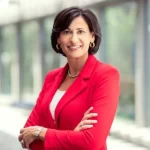 Rochelle Walensky, MD, MPH
Rochelle Walensky, MD, MPH
Dr. Rochelle Walensky served as the 19th Director of the Centers for Disease Control and Prevention (2021-2023), Professor of Medicine, Harvard Medical School (2012-2021), and Chief of the Division of Infectious Diseases, Massachusetts General Hospital (2017-2021). She currently serves as a Senior Fellow of the Women and Public Policy Program at the Harvard Kennedy School of Government. She is also a Hauser Leader, at the Center for Public Leadership, Senior Fellow, Belfer Center for Science and International Affairs and an Executive Fellow of the Harvard Business School.
Dr. Walensky is an infectious disease clinician whose research career is guided by a belief that the clinical and economic outcomes of medical decisions can be improved through the explicit articulation of choices, the systematic assembly of evidence, and the careful assessment of comparative costs and benefits. She has focused these beliefs on mathematical model-based research toward the promotion of global access to HIV prevention, screening, and care. Her ground-breaking work and over 300 research publications have motivated changes to US HIV testing and immigration policy; promoted expanded funding for HIV-related research, treatment, and the President’s Emergency Plan for AIDS Relief (PEPfAR); and led to policy revisions toward aggressive HIV screening – especially for the underserved – and earlier treatment in resource-limited international settings. In light of these contributions, Dr. Walensky has been an active member of policy discussions at the WHO, UNAIDS, the DHHS HIV Guidelines Committee, and the NIH Office of AIDS Research.
Dr. Walensky served on the frontlines of the COVID-19 pandemic in Massachusetts until beginning her tenure at the CDC on January 20th, 2021. While at the CDC, Dr. Walensky led the nation—and the world—through unprecedented times, navigating the darkest days of the COVID-19 pandemic and further facing the largest density of diverse infectious threats likely ever seen in this country. During her tenure, she participated in nearly 100 press conferences and countless media appearances, and provided testimony at 17 Congressional hearings.
Dr. Walensky is a member of the American Academy of Physicians, National Academy of Medicine and the Council on Foreign Relations. She currently serves on the Board of Trustees at the Doris Duke Foundation and The Carter Center.
Dr. Walensky received her BA (Biochemistry and Molecular Biology, 1991) from Washington University in St. Louis; her MD from the Johns Hopkins School of Medicine (1995) and her MPH from the Harvard School of Public Health (Clinical Effectiveness, 2001). She completed her Internal Medicine residency at the Johns Hopkins Hospital (1995-1998) and her Infectious Disease fellowship at the Massachusetts General/Brigham and Women’s Hospital combined program (1998-2001).
ADDITIONAL ACCREDITATION INFORMATION:
NURSE PRACTITIONERS and REGISTERED NURSES
Harvard Medical School designates this live activity for a maximum of 25.75 ANCC contact hours.
PSYCHOLOGISTS
Continuing Education (CE) credits for psychologists are provided through the co-sponsorship of the American Psychological Association (APA) Office of Continuing Education in Psychology (CEP). The APA CEP Office maintains responsibility for the content of the programs.
SOCIAL WORKERS
As a Jointly Accredited Organization, Harvard Medical School is approved to offer social work continuing education by the Association of Social Work Boards (ASWB) Approved Continuing Education (ACE) program. Organizations, not individual courses, are approved under this program. Regulatory boards are the final authority on courses accepted for continuing education credit. Social workers completing this course receive 25.75 general continuing education credits.
RISK MANAGEMENT
This activity meets the criteria of the Massachusetts Board of Registration in Medicine for 3.00 credits of Risk Management Study. This includes:
- 2.00 credits of Medical Marijuana Training
Please check your individual state licensing board requirements before claiming these credits.
PHYSICIAN ASSISTANTS
The National Commission on Certification of Physician Assistants (NCCPA) states that AMA PRA Category 1 Credits™ are acceptable for continuing medical education requirements for recertification. We would also suggest that learners check with their state licensing board to ensure they accept reciprocity with AMA PRA Category 1 Credit™ for re-licensure.
CANADIAN ACCREDITATION
The Royal College of Physicians and Surgeons of Canada recognizes conferences and workshops held outside of Canada that are developed by a university, academy, hospital, specialty society or college as accredited group learning activities.
EUROPEAN ACCREDITATION
The American Medical Association (AMA) has an agreement of mutual recognition of continuing medical education (CME) credit with the European Union of Medical Specialties (UEMS). Additional information regarding this agreement may be found here: https://www.uems.eu/areas-of-expertise/cme-cpd/eaccme
ABMS/ACGME COMPETENCIES
This course is designed to meet the following American Board of Medical Specialties and Accreditation Council of Graduate Medical Education competencies:
- Interpersonal and Communication Skills
- Medical Knowledge
IOM COMPETENCIES
This course is designed to meet the following Institute of Medicine competencies:
- Provide Patient-Centered Care
- Employ Evidence-Based Practice
Questions? Please contact Jocelyn Meek at jmeek@mgb.org for further information.
BHI Welcomes Mahmooda Qureshi, MD, MSCP, DipABLM
The Benson-Henry Institute for Mind Body Medicine (BHI) is pleased to welcome Mahmooda Qureshi, MD, MSCP, DipABLM to its practice.
Dr. Qureshi is a Primary Care Physician at Bulfinch Medical Group at Mass General Hospital (MGH), and an Assistant Professor in Medicine at Harvard Medical School (HMS). She received her medical degree from St. George’s Hospital Medical School, University of London, UK, in 1992, completed her Internal Medicine residency and General Internal Medicine & Women’s Health Fellowship in 1999, at the Cleveland Clinic Foundation, Ohio.
“We’re beyond excited to welcome the fabulous Mahmooda Qureshi to the Benson-Henry Institute team! Her passion, expertise, and incredible energy will help us further our mission of promoting resilience and well-being through evidence-based mind-body medicine,” said BHI Medical Director Darshan, Mehta, MD, MPH.
Dr. Qureshi is a certified Health and Wellness coach (Wellcoaches) and coaches mostly MGB Faculty on career growth and runs group coaching for various programs. She is a Diplomate of the American Board of Lifestyle Medicine and American Board of Internal Medicine. Her expertise is in Primary Care, Mind-Body medicine, Lifestyle medicine, Women’s Health, and Menopause (and is a Menopause Society certified practitioner).
Dr Qureshi is the Co-Director of the HMS courses Primary Care Internal Medicine (PCIM) and the new Women’s Health and Menopause Course (March 2025).
Dr. Qureshi is certified in BHI’s Stress Management and Resiliency Training (SMART program) and enjoys meditation.
BHI Joins Initiative to Support Ukranian Service Members, Families and Medical Professionals
Home Base and Global Response Medicine Launch “Invisible Wounds of Ukraine” Initiative to Support Ukrainian Service Members, Veterans, Families and Medical Professionals

Home Base, a national non-profit founded by the Red Sox and Massachusetts General Hospital, recently returned from a vital visit to Ukraine in March. The trip was part of a pioneering collaboration with the U.S. Veteran-founded non-profit, Global Response Medicine (GRM), to support the rehabilitation and resilience of Ukraine’s Service Members, Veterans and their Families. This visit marked a critical step in the joint “Invisible Wounds of Ukraine” initiative, expanding clinical care models and training for Ukrainian medical professionals as they navigate an unprecedented demand for treating wounds of war.
During the visit, Home Base and GRM representatives met with officials from the Ministry of Internal Affairs and Parliament to better understand Ukraine’s evolving medical challenges and the innovative solutions being implemented. They also explored how Home Base’s more than 15 years of expertise in gold-standard mental health and brain injury care for U.S. Troops and their Families could support these efforts. Discussions focused on equipping Ukrainian medical personnel with advanced techniques in trauma recovery, stress resilience, and reintegration support.



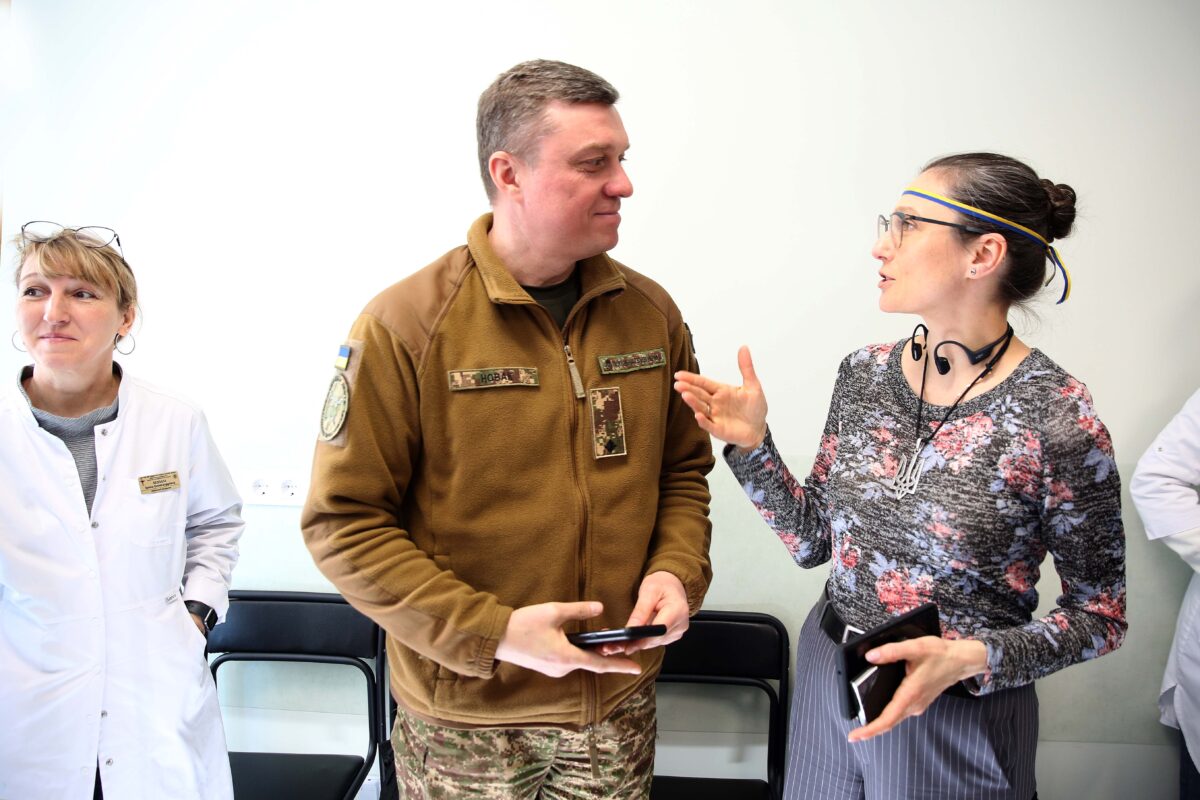
At the heart of this initiative is an exchange of expertise between Home Base, Harvard Medical School and Mass General Brigham specialists, alongside their Ukrainian counterparts. By working together, they aim to ensure that new approaches to mental and brain health care are effectively implemented and tailored to Ukraine’s specific needs.
Among those leading these efforts were senior leaders from Home Base, GRM, Harvard Medical School, Mass General Brigham psychiatry and physiatry experts and the Benson-Henry Institute for Mind Body Medicine at MGH. Home Base specialists, who focus on treating the invisible wounds of war, spent the week engaging with Ukrainian physicians, visiting medical facilities and assessing the mental, neurological and physical rehabilitation needs of wounded Service Members.
This initiative is designed not only to provide immediate support but also to develop long-term solutions for Ukraine’s Service Members, Veterans and their Families. Key areas of focus include enhancing resilience strategies for frontline personnel using trainings developed at the Benson-Henry Institute in collaboration with Home Base, developing interventions for emerging threats such as drone warfare and establishing sustainable rehabilitation and reintegration models to support the hundreds of thousands of Ukrainian Service Members and Veterans transitioning back to civilian life.
Phase Two of the initiative will begin at the end of April when Home Base welcomes their eight Ukrainian mental health counterparts to Boston for an immersive fellowship at Home Base, MGB Psychiatry, Spaulding Rehabilitation Hospital and the Benson Henry Institute for Mind Body Medicine. Ukrainian medical professionals will train alongside Home Base, MGH and Harvard Medical faculty to adapt and implement a Veteran and family mental health care model tailored to Ukraine’s needs. Home Base’s experience supporting more than 45,000 U.S. Veterans and Service Members since 2009 at its Center of Excellence in Charlestown, Massachusetts, will serve as a foundation for developing similar centers in Ukraine.
Additionally, Home Base will introduce its “Resilient Warrior Performance Program”, equipping Ukrainian frontline personnel with practical tools to enhance resilience and performance under combat conditions. A structured fellowship program will also be explored, allowing Ukrainian physicians to train at Home Base and Mass General Brigham, laying the groundwork for long-term mental health support for Ukraine’s Service Members, Veterans and their Families.
“In the conditions of a full-scale war, Ukraine is facing unprecedented challenges in the field of medical care for military personnel, veterans and their families,” said Lilia Boyko, Director of the Department of Health of the Ministry of Internal Affairs of Ukraine. “Protecting the country is not only about fighting on the front lines, but also supporting those who return from war with injuries that are not always visible from the outside. The so-called “invisible wounds” of war require special attention – psychological and traumatic brain injuries, which affect the health of our defenders and their reintegration into the society.
Cooperation with Home Base and Global Response Medicine is an important step towards creating a support system that will help our defenders even after the war ends. International experience, adapted to Ukrainian realities, will allow us to introduce new approaches to the treatment of combat stress, traumatic brain injuries and other consequences of war.
We are grateful to our partners for their support and willingness to share knowledge. This will not only help improve the treatment of Ukrainian military personnel, but will also contribute to the formation of a sustainable medical care system that will work for the future. War leaves deep traces in the minds of everyone who experiences it, and we must do everything possible to ensure that our defenders receive high-quality and timely assistance.
The Ministry of Internal Affairs of Ukraine is ready to fully facilitate the implementation of this initiative and ensure its effective integration into our medical system. We believe that thanks to this cooperation we will be able to provide our military not only with proper medical care, but also a chance for a full life after the war.”
“Since GRM entered Ukraine just eight days after the Russian invasion began in 2022, we’ve witnessed firsthand the devastating toll this war has taken on both body and mind,” said Andrea Leiner, Deputy Director of Global Response Medicine. “For the past three years, we have focused on acute trauma medicine through direct care and professional exchange programs while closely tracking the growing impact of brain injuries and combat stress on Ukraine’s soldiers and Veterans. When the Ukrainian government asked us to expand into invisible wounds, we immediately turned to our friends at Home Base, knowing they are the best in the field.
By bringing together Ukrainian mental health leaders—who are treating unprecedented patient volumes and injury patterns—with American experts who have decades of experience caring for combat Veterans, we are fostering a critical knowledge exchange. This collaboration not only supports Ukraine’s service members and their families but also drives advancements in medical care, which will extend to US service members as well.”
“As Americans who have confronted the complex challenges of the Global War on Terror, we have a profound responsibility to share our hard-learned lessons with our allies and friends in Ukraine,” said Krystal Garvin, Executive Director of Global Response Medicine. “The invisible wounds of war do not discriminate by nationality, and the expertise developed through treating our own Veterans must now be passed on to support Ukraine’s healthcare system. It is both an honor and a privilege to stand side by side with the Ukrainian people as they face an unprecedented mental health crisis that will affect their current 1.2 million Veterans and potentially 5 million more in the coming years. This collaboration represents our enduring commitment to ensuring no warrior, regardless of the flag they serve under, is left to face these challenges alone.”
“We are deeply grateful to Ukraine, its leadership, dedicated medical staff and its incredibly proud and resilient people for hosting us and for GRM’s continued dedication to implementing projects that are critical to Ukraine’s medical and military communities,” said Michael Allard, Chief Operating Officer of Home Base who was among the Home Base leadership who made the trip to Ukraine. “Immersing ourselves into this proud country’s fight to protect and heal its people was a humbling honor that comes with great responsibility. In addition to Ukrainian Soldiers on the front line, every man, woman and child across the country faces daily missile and drone attacks. Tens of thousands are injured and the need to treat, heal and recover is unprecedented. We look forward to sharing Home Base’s innovative and effective care models with our Ukrainian medical leader teams to provide world-class treatment and rehabilitation for their wounded warriors.”
Dr. Ron Hirschberg, Medical Director, Brain Health Program at Home Base, emphasized the importance of being on the ground as a provider, stating, “Being here in Ukraine, side by side with those who have given so much for their country, has been incredibly humbling. As providers, we have the responsibility to listen and learn from their experience in order to best support these brave individuals as they navigate the physical and emotional toll of war. This experience reinforces the urgent need for comprehensive mental health care and reintegration programs, and I am honored to be part of this mission.”
“It is an honor to support this work alongside Global Response Medicine in Ukraine, Retired Brig. Gen. Jack Hammond, Executive Director of Home Base, said. “Their unwavering commitment to providing critical care in some of the most challenging environments is truly inspiring. By working together, we can share expertise, develop essential training programs, and ultimately improve the lives of those who have sacrificed so much.”
“We are proud to integrate the Benson-Henry Institute’s proven mind-body medicine techniques into this vital program supporting Ukraine,” said Greg Fricchione, Director of the Benson-Henry Institute. “Through our collaboration with Home Base and GRM, we can share expertise, develop essential training programs, and, most importantly, bring this care to Ukraine’s Soldiers and their Families as well as caregivers who need it most.”
About Home Base
Home Base is a national non-profit founded by the Boston Red Sox and Mass General Hospital. Home Base is dedicated to healing the invisible wounds of war for Veterans, active-duty Service Members, Military-Connected Families and Families of the Fallen. Home Base leverages the incredible medical resources of the Mass General Brigham, Spaulding Rehabilitation Hospital, and the greater Harvard Medical School, to create innovative models of care. Since inception, Home Base has provided clinical care and support to more than 45,000 U.S. Veterans, Service Members and Families across the nation – all at no cost to them. For more information visit homebase.org. As Home Base’s impact has grown, allied nations have increasingly turned to Home Base to learn about its innovative approach to providing healing and hope.
About Global Response Medicine (GRM):
Global Response Medicine (GRM) is a U.S. Veteran-founded 501(c)(3) nonprofit organization that delivers emergency medical care and advanced clinical training to populations impacted by conflict and disaster. Founded in 2017, GRM operates in high-risk, low-resource environments, integrating principles from military, academic, and prehospital medicine to further evidence-based response. With missions in 10 countries and more than 150,000 people served, GRM has a proven track record of effective deployments in Ukraine, Iraq, Sierra Leone, Mexico, and beyond. GRM goes where others won’t to do what others can’t. Our mission is simple, Save Lives. Period. For more information, visit www.global-response.org.
About Benson-Henry Institute (BHI):
The mission of BHI is to fully integrate mind body medicine into mainstream healthcare at the Massachusetts General Hospital, as well as throughout the country and the world, by means of rigorous, evidence-based research and clinical application of this work.
Elyse Park, PhD, MPH Named Director of Research; BHI Research Team Expanding
The Benson-Henry Institute for Mind Body Medicine (BHI) is pleased to announce Elyse R. Park, PhD, MPH as Director of Research. Dr. Park is a Professor of Psychiatry and a Professor of Medicine at Harvard Medical School and has been on staff at Mass General Hospital and Harvard Medical School since 2001 and has led BHI’s behavioral research program for more than a decade. A lead author of the Stress Management and Resiliency Training (SMART) program, Dr. Park is a gifted clinician and researcher with interest in resiliency, cancer prevention and survivorship, and tobacco treatment research.
“I am very excited about the new phase we are entering with our mind body medicine research,” said BHI Director Gregory L. Fricchione, MD. “Dr. Park is a visionary leader and one of MGH’s most successful researchers. She not only took the lead in manualizing the SMART program but has adapted it for use as a burnout prevention tool, as a support for cancer survivors and other medically vulnerable populations, clinicians, interpreters, and healthcare workers, and as a curriculum for children, siblings and parents of children with autism and special needs, among many other projects. She explores innovative delivery mechanisms, including hybrid and digital modalities.”
Dr. Park is also the founding director of MGH’s Health Promotion and Resiliency Intervention Research Center (HPRIR), serves as Director of the Qualitative and Mixed Methods Research Unit of the MGH Division of Clinical Research and as Director of the MGH Cancer Center’s Smokefree Support Service.
“It is a great honor to lead the Institute’s research mission. We have an incredibly talented transdisciplinary team of researchers and clinicians who are conducting innovative, critical work to improve the wellbeing of our most vulnerable patients, dedicated clinicians and caregivers, and diverse communities,” Dr. Park said. “Our passion for this clinical research is fueled by Dr. Benson’s clairvoyant vision and the increasing growing needs for accessible mind-body and resiliency treatment.”
In addition to Dr. Park, noted neuroimaging and meditation researcher Sara Lazar, PhD, a longtime BHI collaborator; and mindfulness expert and researcher Christina Luberto, PhD; will join the institute as it looks to build and expand our tradition of clinical and mechanistic research.
“Under Dr. Park’s leadership, we enjoy a strong collaboration with the group of talented young health psychologists she mentors. We are now growing our research team with the addition of Dr. Sara Lazar, who is well-known to us from her pioneering neuroimaging work as one of the world’s premier meditation researchers. Dr. Benson and I enjoyed working with Sara as she began her pioneering neuroimaging career. And it is exciting to support her more recent interests in stress, aging, and meditation and in the planning of new studies on human flourishing. We are also very happy to have Dr. Tina Luberto, an expert in mindfulness and self-compassion, who is well known to us from many previous collaborations, join our team and devoting time to our clinical research efforts in stress and aging research, healthcare utilization and mindfulness and meditation studies,” Dr. Fricchione said.
Current Research Projects addressing:
- Depression and anxiety after a cardiovascular event
- Stress coping and resiliency among teenagers of siblings with autism
- Memory and attention for successful aging
- Healthcare utilization among cancer survivors and their caregivers
Mind-Body Resiliency Data Repository
Additionally, the team oversees an ongoing data repository tracking outcomes of clinical patients and research participants to understand the reach and enhance the effects of our programs and their implementation.
https://bensonhenryinstitute.org/research-data-repository/
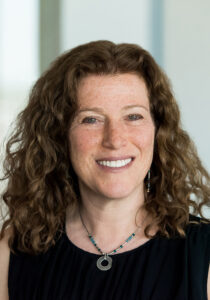 Elyse R. Park, PhD, MPH has extensive experience designating and evaluating behavioral intervention and implementation trials. She founded the Health Promotion and Resiliency Intervention Research Program (HPRIR) in the MGH Departments of Psychiatry & Medicine. Her clinical research focuses on resiliency, health promotion for cancer patients and survivors, cancer risk perceptions, and quality of life for cancer survivors, with a lens of accessible and equitable care for all. She directs the MGH Division of Clinical Research’s Qualitative and Mixed Methods Unit and uses qualitative research to inform intervention development, intervention adaptation, and measurement design. Her research has been supported by funding from the National Cancer Institute, National Center Complementary and Integrative Research Health, the American Cancer Society, the Robert Wood Johnson Foundation, and the National Comprehensive Cancer Network. She has published over 350 peer reviewed original articles
Elyse R. Park, PhD, MPH has extensive experience designating and evaluating behavioral intervention and implementation trials. She founded the Health Promotion and Resiliency Intervention Research Program (HPRIR) in the MGH Departments of Psychiatry & Medicine. Her clinical research focuses on resiliency, health promotion for cancer patients and survivors, cancer risk perceptions, and quality of life for cancer survivors, with a lens of accessible and equitable care for all. She directs the MGH Division of Clinical Research’s Qualitative and Mixed Methods Unit and uses qualitative research to inform intervention development, intervention adaptation, and measurement design. Her research has been supported by funding from the National Cancer Institute, National Center Complementary and Integrative Research Health, the American Cancer Society, the Robert Wood Johnson Foundation, and the National Comprehensive Cancer Network. She has published over 350 peer reviewed original articles
Dr. Park is Director of Research at the Benson-Henry Institute and created the manualized version of the SMART- 3RP which is currently being tested with a variety of individuals with medical illnesses (women undergoing breast biopsy, women with infertility, individuals with cancer), clinicians (palliative care clinicians, cancer care interpreters, frontline clinicians) and healthcare workers, and caregivers (parents of children with special needs, caregivers of cancer survivors). She is also lead investigator and mentor for many mind-body behavioral trials, assessing the feasibility and potential efficacy of integrating the relaxation response into hospital and community-based group and individual treatments delivered in-person and via telehealth and other forms of digital delivery.
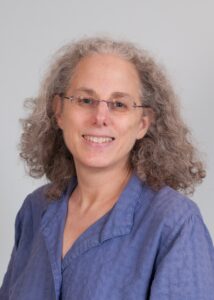 Sara W. Lazar, PhD is an Associate Professor in the Psychiatry Department at Massachusetts General Hospital and Harvard Medical School. The focus of her research is to elucidate the neural mechanisms underlying the beneficial effects of yoga and meditation, both in clinical settings and in healthy individuals. She has also collaborated with clinicians to study the effects on mindfulness on anxiety and depression. Her current work is focused on well-being and personality development. Dr. Lazar has been practicing yoga and mindfulness meditation since 1994 and her research has been covered by numerous news outlets including The New York Times, USA Today, CNN, and WebMD.
Sara W. Lazar, PhD is an Associate Professor in the Psychiatry Department at Massachusetts General Hospital and Harvard Medical School. The focus of her research is to elucidate the neural mechanisms underlying the beneficial effects of yoga and meditation, both in clinical settings and in healthy individuals. She has also collaborated with clinicians to study the effects on mindfulness on anxiety and depression. Her current work is focused on well-being and personality development. Dr. Lazar has been practicing yoga and mindfulness meditation since 1994 and her research has been covered by numerous news outlets including The New York Times, USA Today, CNN, and WebMD.
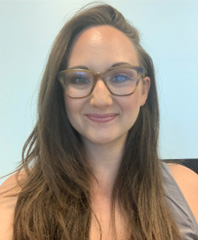 Christina Luberto, PhD, is a licensed clinical psychologist and Assistant Professor in Psychiatry at Harvard Medical School. Her interests center on mindfulness- and compassion-based interventions for emotional and behavioral health promotion in people with heart disease. Dr. Luberto is a staff psychologist and clinical researcher at Massachusetts General Hospital where she works as Associate Director for Mindfulness Research and Programs in the Health Promotion and Resiliency Intervention Research Center, and Associate Director for Compassion-based Research at the Benson-Henry Institute for Mind-Body Medicine. She is founding Director of the MGH Women’s Heart Health Mindful Living Center, a clinical and research center focused on evidence-based mindfulness and mind-body interventions for patients with heart disease.
Christina Luberto, PhD, is a licensed clinical psychologist and Assistant Professor in Psychiatry at Harvard Medical School. Her interests center on mindfulness- and compassion-based interventions for emotional and behavioral health promotion in people with heart disease. Dr. Luberto is a staff psychologist and clinical researcher at Massachusetts General Hospital where she works as Associate Director for Mindfulness Research and Programs in the Health Promotion and Resiliency Intervention Research Center, and Associate Director for Compassion-based Research at the Benson-Henry Institute for Mind-Body Medicine. She is founding Director of the MGH Women’s Heart Health Mindful Living Center, a clinical and research center focused on evidence-based mindfulness and mind-body interventions for patients with heart disease.
The Benson-Henry Institute for Mind Body Medicine
Named for Founder Herbert Benson, MD, a cardiologist and pioneer of mind body medicine, and American businessman and Boston-based philanthropist John W. Henry, the Benson-Henry Institute was established at Massachusetts General Hospital in 2006 to provide coordinated mind body care practices to patients and clinicians, conduct research into the value of integrative medicine, and promote the use of mind body medicine in healthcare systems. BHI has conducted some of the most cutting-edge research demonstrating the healing effects of stress management and reduction. Today, the institute provides direct care to patients and trains hundreds of clinicians around the world in the delivery of its copyrighted Stress Management and Resiliency Training (SMART) and Positivity and Relaxation Training (PART) programs in clinics, community settings and universities around the world.
Guided Relaxation Exercises
The Benson-Henry Institute is happy to provide guided relaxation exercises to help you as you manage stress during these uncertain times. You can download individual tracks by clicking on the links. More exercises will be added, so please continue to check this page.
Videos
Mindful Walk Take a walk with Laura Malloy to appreciate your surroundings and all nature has to offer.
Desk Yoga with Laura Malloy, LICSW, C-IAYT
Working from home? The strain and stress from sitting so much can lead to muscle tension. This Desk Yoga video will help you stretch and flex to feel better.
The Garden with Katherine Rosa, PhD, FNP-BC
Focusing on a positive quality you’d like to experience more.
Connection Meditation with Peg Baim, MS, NP
This meditation encourages our connection to nature, to others and to humanity.
Safe Place, Healing Light with Peg Baim, MS, NP
This guided meditation video helps us build calm and peace during this period of social distancing.
Imagery for Strength with Laura Malloy, LICSW, C-IAYT
In uncertain times, we can drawn on our own strengths and visualize success.
Joyful Place with Katherine Rosa, PhD, FNP-BC
In this Loving Kindness meditation we develop positive thoughts for ourselves, for others and the world around us.
Harvard Health Podcasts with BHI Director Gregory L. Fricchione, MD
Stress and anxiety in the time of Covid-19. A Harvard psychiatry professor weighs in.
How to conquer your anxieties during the COVID-19 outbreak
Eliciting the Relaxation Response with Herbert Benson, MD
Audio Files
Bringing Relaxation to Your Life
Olivia Hoblitzelle, MA
- Introduction to the Relaxation Response – including key techniques such as breath-awareness, body scan relaxation and use of a focus word. Specific instructions help you develop a relaxation response practice.
- Awareness or mindfulness of sensations, thoughts, and sounds.
Building A Meditation Practice
Peg Baim, MS, NP
Healing Meditations
Leslee Kagan, MS, FNP-BC
The Passing of Herbert Benson, MD
It is with great sadness that we announce the passing of our founder, Herbert Benson, MD, Director Emeritus of the Benson-Henry Institute of Mind Body Medicine at Massachusetts General Hospital and Mind Body Professor of Medicine at Harvard Medical School.
A pioneer of mind body medicine, Dr. Benson defined the relaxation response, the physiological counterpart of the fight-or-flight response. Throughout a career spanning five decades, he researched the efficacy of the relaxation response in counteracting the harmful effects of stress. His research extended from the laboratory, to the clinic, to Asian field expeditions and served as a bridge between medicine and spirituality, East and West, mind body, belief and science.
“Herb was a visionary, and a father of mind body medicine. He believed that humans have a great capacity for healing, and that self-care techniques, along with medication and medical procedures, can form ‘the three-legged stool’ of an ideal healthcare model,” said Gregory L. Fricchione, MD, Director of the Benson-Henry Institute (BHI). “Early on, when some others scoffed at his work in this area, he persevered and history has proven him to be prescient; as we live through this pandemic for example, we find that self-care and stress management and resilience are tools and skills that we need to survive and thrive.”
Dr. Benson was the author or co-author of more than 190 scientific publications and 12 books, including The Relaxation Response (1975), a New York Times bestseller that sold more than 6 million copies and was translated into multiple languages. The small, red paperback was read far and wide and influenced generations of trainees and researchers; many of whom became leaders in the field, Dr. Fricchione said.
Born April 24, 1935, in Yonkers, NY, Dr. Benson was a graduate of Wesleyan University and Harvard Medical School. As a young cardiologist, Dr. Benson and his colleagues established a scientific basis for the mind body connection by studying the effect of stress and relaxation on blood pressure; he was one of the first people to establish the physiologic underpinning of the mind body connection.
In the very room at Harvard Medical School where the “fight or flight,” or stress response, was delineated by Walter B. Cannon in the early 1900s, Dr. Benson and colleagues described its opposite. Specifically, they found that meditation reduced metabolism, rate of breathing and heart rate, and modulated brain activity. Dr. Benson labeled these changes the “relaxation response.”
Dr. Benson explained two basic steps to elicit the relaxation response: 1) the repetition of a sound, word, phrase, prayer, or movement, and 2) the passive setting aside of intruding thoughts and with a return to repetition. These 2 steps break the train of everyday thinking.
He also found that a person could bring about the relaxation response using any number of meditative techniques, such as repetitive prayer, qigong, tai chi, yoga, progressive muscle relaxation, belly breathing, even activities like knitting.
In 1979, Dr. Benson met the Dalai Lama, spiritual leader of Tibet, during a visit to Harvard University. The two forged a decades-long friendship, which led to several expeditions to northern India where many Tibetan monks live in exile. During visits to remote monasteries in the 1980s, Benson and his team were among the first researchers allowed to study the ancient meditative traditions of monks living in the Himalayan Mountains.
Although a best-selling author with the opportunity to become a celebrity doctor, Dr. Benson was committed to science and evidence-based medicine. He was courageous in researching the mind body relationship at a time when many in academic medical circles expressed skepticism. New research technologies in epigenetics, neuroimmunology, transcriptomics and MRI and PET scanning have demonstrated that Dr. Benson was ahead of his time regarding the bidirectional effects of mind on body and body on mind.
“In our family Dr. Benson was affectionately referred to as ‘Dada’ which translates to big brother or grandfather. He always had that presence at the Institute – he was your big brother or grandfather, looking out for you,” said Darshan Mehta, MD, MPH, BHI’s Medical Director. “His life in many ways was about living a life of courage – fighting – he firmly believed that the path to integrating wisdom traditions or practices into modern medicine was through understanding the science and in that way, he believed in all of us. I firmly believe that my own career reflects that conviction.”
In 1978, Dr. Benson developed the first Harvard Medical School CME course in behavioral medicine. In 1995, he delivered the first Harvard Medical School CME courses in mind body medicine and in spirituality and healing in medicine.
“Fulfillment is so closely aligned with being of service. For those of us whose clinical practice has been shaped by Dr. Benson, we owe a debt of gratitude. His pioneering work paved the way for integration of a holistic and self-care approach in medicine. It feels as if a little piece of us died with him, given the vital role he’s played in deepening the service of healing professions,” said Peg Baim, MS, NP of BHI. “If the measure of one’s life is viewed from the magnitude of benefit brought to others, Dr. Benson’s life was immense. Through the years, inspired by his research and writings, legions of healthcare professionals have been drawn to mind body medicine and countless more patients have ‘remembered wellness’ thanks to the generosity of his spirit and his dedication to the science and wonder of mind body interactions.”
He testified several times before the U.S. House and Senate, and was instrumental in appropriating millions of dollars to the National Institutes of Health and the Centers for Disease Control and Prevention for mind body and behavioral medicine research. He was a founding trustee of The American Institute of Stress and received numerous awards, accolades and honorary degrees during his distinguished career. This paved the way for many other scientists to work in mind body medicine.
In 1969, he began his academic career at Harvard Medical School; he was on the staff of the Deaconess Hospital, Beth Israel Hospital and Beth Israel Deaconess Medical Center before becoming the founding president of the Mind/Body Medical Institute. He remained in that position until 2006, when it was integrated into Massachusetts General Hospital as the Benson-Henry Institute for Mind Body Medicine thanks to the support of the hospital and philanthropist and businessman John Henry. Dr. Benson remained active as Director Emeritus of BHI until his death.
“Herb was renowned for the warmth of his personality and his optimism. I will always remember fondly riding in elevators with him as he proceeded to make friends with everyone over the course of a few floors. He had the healer’s touch,” Dr. Fricchione said.
Dr. Benson was immensely proud of his family; he leaves behind his wife, Marilyn Wilcher Benson, founder of BHI’s Resilient Youth Program; son Dr. Gregory Benson of New Jersey; and daughter, Jennifer Benson-Bufferd of Illinois; and four grandchildren. Arrangements have not been finalized, but a celebration of life will be planned at MGH at a later date.
How to Manage Stress & Enjoy the Holidays
The holidays can be the best of times, and the worst of times. Try to find a good balance by being mindful of your own needs and recognizing the importance of social connectedness over consumerism.
“The holidays can be an exciting time of anticipation and joy, but they can also be a time of elevated stress,” says BHI Director of Research Elyse Park, PhD, MPH. “Try to stay focused on the aspects of the holiday you appreciate – the people you enjoy, familiar foods and songs, and pleasurable traditions. Try to not let the extra hassles and pressures of the season get to you. Make one meaningful, attainment goal for the new year!”
Here are a few resiliency tips that Dr. Park suggests you can do to make your holiday season bright:
- Appreciation – While we tend to focus on giving to others during this season, we can also make the holidays a time of gratitude: take time out to note the smaller appreciations of life – hearing the soothing holiday music, the familiar sights and scents of the season and appreciating others who are gifts in our lives.
- Self-Care – Make sure that you are preserving your sleep, engaging in mindful eating (i.e. partaking holiday treats in moderation) and still keeping physically active in spite of the cold. Cherishing oneself is really important!
- Stress awareness – We need to recognize that positive things like holidays can be very stressful; our To Do lists can weigh us down. Be aware of what holiday obligations or preparations are most stressful to you and evaluate which ones you really need to engage in – i.e. do you really need to send 100 holiday cards? Would it be better to make a few phone calls or consider an electronic card?
- Social connectedness – The holidays are about togetherness, but they can also have the opposite effect. Often people feel lonely during this time, reflecting on a lost loved one or missing someone who is far away. We can help others by reaching out through acts of kindness, like making a treat or a small gift or by taking part in volunteer activities for those who are less fortunate. We can also remedy our own sense of loneliness by reaching out and expressing gratitude to the people in our lives. Humans are all about connectedness – show those around you that you appreciate their presence and feel fortunate to have them in your life!
- Creativity – Instead of spending money on things (and often feeling financially stressed about gift giving) consider tapping into your own creativity to make thoughtful, personalized gifts – cards, poems and other meaningful items. Give homemade baked goods or just a note to say Happy Holidays. It is the thought that matters, not the price.
Register for The Herbert Benson, MD Course in Mind Body Medicine October 30 – November 2, 2024
Harvard Medical School CME In-Person in Boston, MA AND via Live Streaming
Registration is now open for The Herbert Benson, MD Course in Mind Body Medicine, the Benson-Henry Institute’s celebrated continuing medical education (CME) course, offered in partnership with Harvard Medical School.
The course will be held live, in person at the Fairmont Copley Hotel in Boston, MA and will be livestreamed to participants around the world. Video recordings of all talks will be available to all conference-goers for up to 60 days. BHI is also offering two optional online pre-course workshops, Mind Body Approaches to Weight Management (new!) and Group Medical Visits to Guide Patients to Healthier Lifestyle Behaviors.
“The Herbert Benson Course in Mind Body Medicine is an opportunity for clinicians, researchers, scientists and mind body enthusiasts to explore the latest research and learn the best techniques in mind body medicine. Our work – providing patients with skills to build resilience and improve wellbeing – are essential as we rebound from the pandemic and face a multitude of other stressful challenges at home and abroad. We are so pleased to be able to meet each other again in person this fall, and to provide online streaming to participants around the world. The course provides a wonderful opportunity to connect and collaborate with colleagues around the world,” said BHI Director Gregory Fricchione, MD. “We have an impressive line-up of keynotes and experts in the field, and this year we are offering two exciting optional half-day courses on mind body approaches to weight management and delivering mind body medicine in group visits.”
Keynote speakers are Katarina Blom, MA, positive psychology researcher, author of The Togetherness Effect and star of the NBC show “The Gentle Art of Swedish Death Cleaning;” Chris Palmer, MD, Harvard psychiatrist and researcher working at the interface of metabolism and mental health; Martin Picard, PhD, director of the Mitochondrial Psychobiology Group at Columbia University Irving Medical School, which investigates organelle-to-organism communication linking the human experience with molecular and energetic processes inside mitochondria; and David R. Williams, PhD, MPH, MDiv, Harvard University professor of public health whose research enhances our understanding of the complex ways in which socioeconomic status, race, stress, racism, health behavior and religious involvement can affect health.
This program is among the highest-rated Harvard Medical School CME course. The Harvard Medical School is accredited by the Accreditation Council for Continuing Medical Education (ACCME) to provide continuing medical education for physicians. The Harvard Medical School designates this live activity for a maximum of 25.75 AMA PRA Category 1 Credits™. Physicians should claim only the credit commensurate with the extent of their participation in the activity. For additional accreditation information, please see below.
Participants will get
- The latest clinical approaches and integrative models of care
- Cutting-edge research into the linkages between the brain and the body
- Education on genomics, transcriptomics, metabolomics ad how to leverage recent advances in the neuroimaging of contemplative states
- Current data on stress, stress management and resilience enhancement, and their impacts on patient health and treatment options
For course scheduling, information and to register, please visit mindbody.hmscme.com. Register by September 20th for an early bird discount.
About our Keynotes
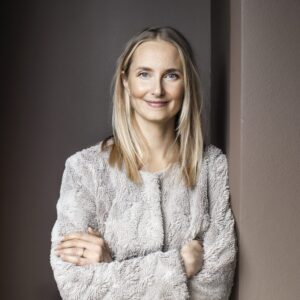 Katarina Blom, PhD, is a happiness psychologist who focuses on how we can create sustainable well-being during times of change. She is the co-author of two books on happiness and stars in the NBC reality series “The Gentle Art of Swedish Death Cleaning” where she helps individuals not only come to terms with mortality but also enrich their lives by forging deeper connections with loved ones through the treasures passed down within their homes. Her TedX Talk, “You Don’t Find Happiness, You Create It,” has been viewed 5 million times.
Katarina Blom, PhD, is a happiness psychologist who focuses on how we can create sustainable well-being during times of change. She is the co-author of two books on happiness and stars in the NBC reality series “The Gentle Art of Swedish Death Cleaning” where she helps individuals not only come to terms with mortality but also enrich their lives by forging deeper connections with loved ones through the treasures passed down within their homes. Her TedX Talk, “You Don’t Find Happiness, You Create It,” has been viewed 5 million times.
In addition to her media work, Dr. Blom is the co-author of two books, Seriously Happy – An Introduction to Positive Psychology and Lonely or Strong – How to Create Successful Teams. She is currently in the process of writing her third book, The We-Brain – The Surprising Science on How Our Connections Make Us Happier, Healthier, And More Resilient.
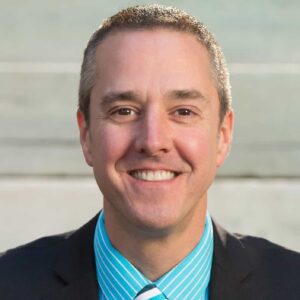 Chris Palmer, MD, is a Harvard psychiatrist and researcher working at the interface of metabolism and mental health. He is the Founder and Director of the Metabolic and Mental Health Program and the Director of the Department of Postgraduate and Continuing Education at McLean Hospital and an Assistant Professor of Psychiatry at Harvard Medical School. For almost 30 years, he has held administrative, educational, research, and clinical roles in psychiatry at McLean and Harvard. He has been pioneering the use of the medical ketogenic diet in the treatment of psychiatric disorders—conducting research in this area, treating patients, writing, and speaking around the world on this topic. Most recently, he has proposed that mental disorders can be understood as metabolic disorders affecting the brain, which has received widespread recognition in both national and international media outlets.
Chris Palmer, MD, is a Harvard psychiatrist and researcher working at the interface of metabolism and mental health. He is the Founder and Director of the Metabolic and Mental Health Program and the Director of the Department of Postgraduate and Continuing Education at McLean Hospital and an Assistant Professor of Psychiatry at Harvard Medical School. For almost 30 years, he has held administrative, educational, research, and clinical roles in psychiatry at McLean and Harvard. He has been pioneering the use of the medical ketogenic diet in the treatment of psychiatric disorders—conducting research in this area, treating patients, writing, and speaking around the world on this topic. Most recently, he has proposed that mental disorders can be understood as metabolic disorders affecting the brain, which has received widespread recognition in both national and international media outlets.
Dr. Palmer received his medical degree from Washington University School of Medicine. He did his internship and psychiatry residency at McLean Hospital, Massachusetts General Hospital, and Harvard Medical School.
Dr. Palmer leads McLean Hospital’s Department of Postgraduate and Continuing Education. In this role, he has developed hundreds of educational conferences, workshops, Grand Rounds, and other professional educational activities, most of them under the aegis of Harvard Medical School. His leadership has transformed the department from a small, subsidized department of the hospital into a flourishing educational program that is now leading mental health education for professionals nationwide.
He has held numerous leadership positions in the continuing education field beyond McLean Hospital’s program, including serving on leadership, advisory, and strategic planning committees of Harvard Medical School, Partners Healthcare, the Massachusetts Medical Society, and the Accreditation Council for Continuing Medical Education (ACCME).
Dr. Palmer has been involved in psychiatric research for over 23 years. He has served as a research physician in the Behavioral Psychopharmacology Research Laboratory and the Sleep Research Laboratory, both at McLean Hospital, where he worked with teams pursuing wide-ranging research in the areas of addiction and sleep.
Most recently, his research interests have turned to the areas of metabolism, metabolic disorders, and their connection to mental disorders. Interestingly, the connections are widespread and span across numerous mental and metabolic disorders. He is focused on combining and understanding epidemiological data, basic science research, and clinical studies in order to better understand what role metabolism plays in mental illness.
Dr. Palmer has been pioneering the use of the ketogenic diet and its applications in psychiatry. The ketogenic diet is an evidence-based treatment for epilepsy, and can work in treatment-resistant cases, even after numerous medications and even surgery fail to control seizures. It doesn’t work for everyone, but it does work for a significant percentage of people. It turns out that many anti-epileptic treatments are used routinely in psychiatry, so this dietary intervention should at least be considered in the treatment of mental disorders. Interestingly, the ketogenic diet is a metabolic intervention and has been shown to have profound effects on brain metabolism. These changes may correct some of the metabolic abnormalities found in people with mental disorders. Dr. Palmer has published case studies, pilot clinical trials, and is actively conducting research in this area. He is also working with researchers from around the world to further explore this treatment in clinical populations as well as pursuing more basic science research.
In 2023, Dr. Palmer became the Founder and Director of the McLean Hospital Metabolic and Mental Health Program. This new and innovative program will conduct research exploring the role of metabolism in mental health and the use of metabolic treatments for people with mental health conditions, offfer consultations to McLean Hospital patients who are interested in a metabolic approach, and develop education for healthcare professionals,
Dr. Palmer’s clinical practice has focused on helping people suffering from treatment-resistant mental illnesses, including mood disorders, psychotic disorders, and personality disorders. His treatment approach has been comprehensive and has included psychopharmacology, psychotherapy, and complementary and alternative treatments. However, he has always been looking for better treatments and outcomes because far too many people do not get better with our current approaches.
 Martin Picard, PhD is an Associate Professor of Behavioral Medicine in Psychiatry, Neurology and the Robert N. Butler Columbia Aging Center at Columbia University Irving Medical School. A mitochondrial biologist, Dr. Picard’s world-class research explores the impact of mitochondria in physical and mental health.
Martin Picard, PhD is an Associate Professor of Behavioral Medicine in Psychiatry, Neurology and the Robert N. Butler Columbia Aging Center at Columbia University Irving Medical School. A mitochondrial biologist, Dr. Picard’s world-class research explores the impact of mitochondria in physical and mental health.
Dr. Picard received his BSc Honours in neuroimmunology, and PhD in mitochondrial biology of aging at McGill University. He then moved to the University of Pennsylvania for a postdoctoral fellowship in the Center for Mitochondrial and Epigenomic Medicine with Doug Wallace. There, he worked on mitochondria-mitochondria interactions, mitochondrial reprogramming of the nuclear (epi)genome, and mitochondrial stress pathophysiology along with Bruce McEwen at the Rockefeller University. He joined the faculty of Columbia University in 2015.
Dr. Picard directs the Mitochondrial Psychobiology Group at CUIMC, which investigates organelle-to-organism communication linking the human experience with molecular and energetic processes inside mitochondria. His laboratory has identified novel membrane structures for mitochondrial communication in rare mitochondrial diseases, showed that cell-free mitochondrial DNA (cf-mtDNA) is a psychological stress-inducible molecule detectable in blood and saliva, and developed a mitochondrial health index (MHI) to study the mind-mitochondria connection in immune cells and brain tissue. His group also has established that human hair greying is reversible and linked to life stress, and developed a longitudinal cellular lifespan model that recapitulates trajectories of human epigenetic aging and allostatic load in vitro. Dr. Picard’s translational research program has contributed to defining the diversity of mitochondria across the brain and body, and to longitudinally examining the link between stress, energy expenditure, and the rate of aging at the cellular level.
With their collaborators, investigators and trainees in the Mitochondrial Psychobiology Group combine clinical, cellular, and computational approaches to understand how energetic processes and perturbations within mitochondria interact with key brain-body processes that shape aging biology and sustain human health. Moving beyond the disease focus of biomedicine, Dr. Picard co-leads a Science of Health initiative aiming to define and quantify individualized health states, a necessary step to accelerate the transition towards sustainable healthcare over the next century.
Research on the link between energy, stress, and health from the Mitochondrial Psychobiology Group has been covered in The New York Times, Scientific American, The New Yorker, and on TEDx.
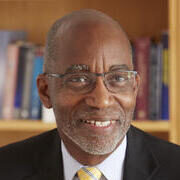 David R. Williams, PhD, MPH, M. Div. David R. Williams is a St Lucian and American social scientist who has specialized in the study of social influences on health. His research has enhanced our understanding of the complex ways in which race, socioeconomic status, racism, stress, health behaviors and religious involvement can affect physical and mental health. He has been invited to keynote scientific conferences in Europe, Africa, the Middle East, Australia, South America and across the United States.
David R. Williams, PhD, MPH, M. Div. David R. Williams is a St Lucian and American social scientist who has specialized in the study of social influences on health. His research has enhanced our understanding of the complex ways in which race, socioeconomic status, racism, stress, health behaviors and religious involvement can affect physical and mental health. He has been invited to keynote scientific conferences in Europe, Africa, the Middle East, Australia, South America and across the United States.
Dr. Williams is the Florence Sprague Norman and Laura Smart Norman Professor of Public Health, and chair of the Department of Social and Behavioral Sciences at the Harvard T.H. Chan School of Public Health. He is also a Professor of African and African American Studies and of Sociology at Harvard University. His first 6 years as a faculty member were at Yale University where he held appointments in both Sociology and Public Health. The next 14 years were at the University of Michigan where he was the Harold Cruse Collegiate Professor of Sociology, a Senior Research Scientist at the Institute of Social Research and a Professor of Epidemiology in the School of Public Health.
Dr. Williams is the author of more than 500 scholarly papers in scientific journals and edited collections and his research has appeared in leading journals in sociology, psychology, medicine, public health and epidemiology. The Everyday Discrimination scale that he developed is currently the most widely used measure to assess perceived discrimination in health studies. He has served on the editorial board of 16 scientific journals and as a reviewer for over 70 journals. According to ISI Essential Science Indicators, he was one of the Top 10 Most Cited Researchers in the Social Sciences during the decade 1995 to 2005. The Journal of Black Issues in Higher Education ranked him as the Most Cited Black Scholar in the Social Sciences in 2008. And Thomson Reuters ranked him, in 2014, as one of the World’s Most Influential Scientific Minds based on his scientific articles published between 2002 and 2012. In 2023, ScholarGPS ranked him number one in citations in African and African American Studies worldwide.
With funding from the National Institutes of Health and the sponsorship of the World Health Organization, Dr. Williams directed the South African Stress and Health Study, the first nationally representative study of the prevalence and correlates of psychiatric disorders in sub-Sahara Africa. This study assessed the effects of HIV/AIDS, exposure to racial discrimination and torture during apartheid, on the health of the South African population. He was also a key member of the team that conducted the National Study of American Life, the largest study of mental health disorders in the African American population in the U.S. and the first health study to include a large national sample of Blacks of Caribbean ancestry. He also served as the director of the Lung Cancer Disparities Center at Harvard, a center for Population Health and Health Disparities funded by the National Institutes of Health.
Dr. Williams received his elementary and high school education in Castries, St Lucia. After completing his undergraduate degree at the University of the Southern Caribbean in Trinidad and Tobago, he earned master’s degrees in divinity and public health, at Andrews University and Loma Linda University, respectively. He next earned a master’s and PhD degree in sociology from the University of Michigan.
ADDITIONAL ACCREDITATION INFORMATION:
NURSE PRACTITIONERS and REGISTERED NURSES
Harvard Medical School designates this live activity for a maximum of 25.75 ANCC contact hours.
PSYCHOLOGISTS
Continuing Education (CE) credits for psychologists are provided through the co-sponsorship of the American Psychological Association (APA) Office of Continuing Education in Psychology (CEP). The APA CEP Office maintains responsibility for the content of the programs.
SOCIAL WORKERS
As a Jointly Accredited Organization, Harvard Medical School is approved to offer social work continuing education by the Association of Social Work Boards (ASWB) Approved Continuing Education (ACE) program. Organizations, not individual courses, are approved under this program. Regulatory boards are the final authority on courses accepted for continuing education credit. Social workers completing this course receive 25.75 general continuing education credits.
RISK MANAGEMENT
This activity meets the criteria of the Massachusetts Board of Registration in Medicine for 3.00 credits of Risk Management Study. This includes:
- 2.00 credits of Medical Marijuana Training
Please check your individual state licensing board requirements before claiming these credits.
PHYSICIAN ASSISTANTS
The National Commission on Certification of Physician Assistants (NCCPA) states that AMA PRA Category 1 Credits™ are acceptable for continuing medical education requirements for recertification. We would also suggest that learners check with their state licensing board to ensure they accept reciprocity with AMA PRA Category 1 Credit™ for re-licensure.
CANADIAN ACCREDITATION
The Royal College of Physicians and Surgeons of Canada recognizes conferences and workshops held outside of Canada that are developed by a university, academy, hospital, specialty society or college as accredited group learning activities.
EUROPEAN ACCREDITATION
The American Medical Association (AMA) has an agreement of mutual recognition of continuing medical education (CME) credit with the European Union of Medical Specialties (UEMS). Additional information regarding this agreement may be found here: https://www.uems.eu/areas-of-expertise/cme-cpd/eaccme
ABMS/ACGME COMPETENCIES
This course is designed to meet the following American Board of Medical Specialties and Accreditation Council of Graduate Medical Education competencies:
- Interpersonal and Communication Skills
- Medical Knowledge
IOM COMPETENCIES
This course is designed to meet the following Institute of Medicine competencies:
- Provide Patient-Centered Care
- Employ Evidence-Based Practice
Questions? Please contact Jocelyn Meek at jmeek@mgb.org for further information.
In perspective piece, BHI experts urge full integration of stress reduction into care & research
The need is especially important now, when COVID-19 fears are high
BOSTON — In a perspective published in the New England Journal of Medicine, researchers from the Benson-Henry Institute (BHI) for Mind Body Medicine at Massachusetts General Hospital (MGH) call for broader use of mind-body practices.
In a time when meditation, yoga and mindfulness increase in popularity for general well-being, the piece emphasizes the necessity of fully integrating these stress-reduction practices into patient treatment plans and medical research.
Stress exacerbates anxiety and depression and plays a role in conditions such as cardiovascular disease, autoimmune disorders, irritable bowel syndrome, headaches and chronic pain, according to lead author Michelle Dossett, MD, PhD, of UC Davis Health.
“By reducing the body’s stress response, mind-body practices can be a powerful adjunct in medicine by helping to decrease patients’ symptoms and improving their quality of life,” says Dossett, who was a physician and researcher with BHI when the perspective was written.
Despite its recent rise in popularity among the general public, mind-body medicine isn’t new. Researchers at BHI have been integrating the field of mind-body medicine into MGH’s clinical care, research and training programs since 2006. Early research on the advantages of such techniques dates back 40+ years, when the institute’s founder and perspective senior author, Herbert Benson, MD, became one of the first Western physicians to bring spirituality and healing into medicine and is most famously known for his work with the Relaxation Response.
“The Relaxation Response,” Benson states, “is an inborn, anti-stress capacity that transcends the differences that separate mind from body, science from spirituality and one culture from another.”
At BHI, mind-body medicine is widely recognized as the third leg of a three-legged stool: the first leg is surgery, the second is pharmaceuticals and the third is self-care, in which patients learn techniques to improve their own health through mind-body medicine, nutrition and exercise.
“Western medicine has produced revolutionary health benefits through advances in pharmacotherapies and procedures,” the researchers describe in the perspective. “It now faces enormous challenges in battling stress-related noncommunicable diseases. …Chronic pain, often perpetuated by psychosocial stress, has become an epidemic that our pharmaceutical arsenal is poorly equipped to handle and medical costs continue to soar. Mind-body therapies can be a helpful adjunct in managing chronic pain and other stress-related noncommunicable diseases by fostering resilience through self-care.”
The article also addresses skeptical patients’ preconceived notions of mind-body medicine as well as the anticipated barriers of service coverage and clinician education on the appropriate use of these tools. These challenges further reinforce the need for continued research and investment into the development and implementation of personalized practices to maximize their public health potential.
Dossett and her colleagues also note that mind-body practices can be helpful in reducing stress related to the COVID-19 epidemic.
Benson and perspective co-author Gregory Fricchione, MD, who is BHI’s current director, lead the field of mind-body medicine and research on counteracting the harmful effects of stress, thereby promoting health and reducing the vulnerability to stress-related illnesses. Dossett, who trained and mentored with Fricchione and Benson, moves the research of mind-body medicine beyond the walls of the BHI at UC Davis Health as a lead researcher in integrative medicine and assistant professor of internal medicine.
About the Massachusetts General Hospital
Massachusetts General Hospital, founded in 1811, is the original and largest teaching hospital of Harvard Medical School. The MGH Research Institute conducts the largest hospital-based research program in the nation, with an annual research budget of more than $1 billion and comprises more than 8,500 researchers working across more than 30 institutes, centers and departments. In August 2019 the MGH was once again named #2 in the nation by U.S. News & World Report in its list of “America’s Best Hospitals.”
Home with the Kids during Coronavirus: An Opportunity
You’re home with the kids for the foreseeable future and wondering how you’re going to cope: will they keep up on schoolwork? Will you be able to get any work done? Will you all go stir-crazy?
The key to thriving in this uncertain situation is how you frame it, says Rana Chudnofsky, MEd, director of BHI’s Resilient Youth program.
“We’re being given the unexpected gift of time by having our children at home,” Chudnofsky says. “This is also a time of appreciation: aren’t we lucky to be able to be home together. Talk about and appreciate the people who are working every day – first responders, medical professionals, the people at the grocery story and the mail carrier. We need to remind ourselves how lucky we are to have these people here to support us.”
Being home together can be challenging and overwhelming since we are used to highly scheduled lives, but we can find gratifying ways to be together on a day-to-day basis.
Chudnofsky offers some ideas:
- It is important to give your children time to talk about their feelings, and really listen.
- Remain optimistic. Children sense when we are anxious, so try to remain balanced in your own body and mind and your children will learn by example.
- Limit technology. Instead of directing children to technology, we have the opportunity to spend mindful time with them and offer new opportunities for learning. Instead of being too busy to be present for our children, we have the luxury of time to create shared learning opportunities with a home schedule.
- Maintain a level of normalcy and make time for creativity. We know that most children do better with structure. Perhaps we can create a daily schedule that includes structure as well as time for imagination and play.
- Stay connected. Technology can provide ways to maintain and strengthen relationships with family and friends near and far. You can make phone calls, set up group chats, text supportive messages, send photos and make cards to mail.
This is also an opportunity to learn about caring for community. Who lives in your area? Are there any elderly people that are alone who might need a daily check-in call? Are there any people dealing with illness in your neighborhood who can use a supportive phone call? How well do you know your cousins? This could be a good time to get to know your extended family, or perhaps you can delve into your genealogy.
Things families can do together:
- Create a jar that holds words of thankfulness. Each family member writes something they are thankful for and puts it in the jar to read at a later date.
- Create a family meditation and a special place that you are all enjoy together. For example, if you all enjoy going to the ocean and have a favorite place, create a relaxing meditation where you are together, relaxed and happy in this special place.
- Enjoy a game of charades.
- Getting outside for fresh air and sunshine
- Read a book together.
- Create a story together.
- Cook together. (You can make it both a math and science lesson!)
- Arrange video play dates to connect with day care and school friends
For older kids
- They can journal about this time.
- Map out a trip in your mind.
- Read a book and then watch the movie and compare it.
- Explore your local library website with your child.
- Explore on-line events.
- Enjoy audible books with children of all ages.
“This Coronavirus can give us a great opportunity stop, pause and enjoy the people we have in our lives. If we look at this as an opportunity, we can optimize our experiences and enjoy one another,” Chudnofsky said.



